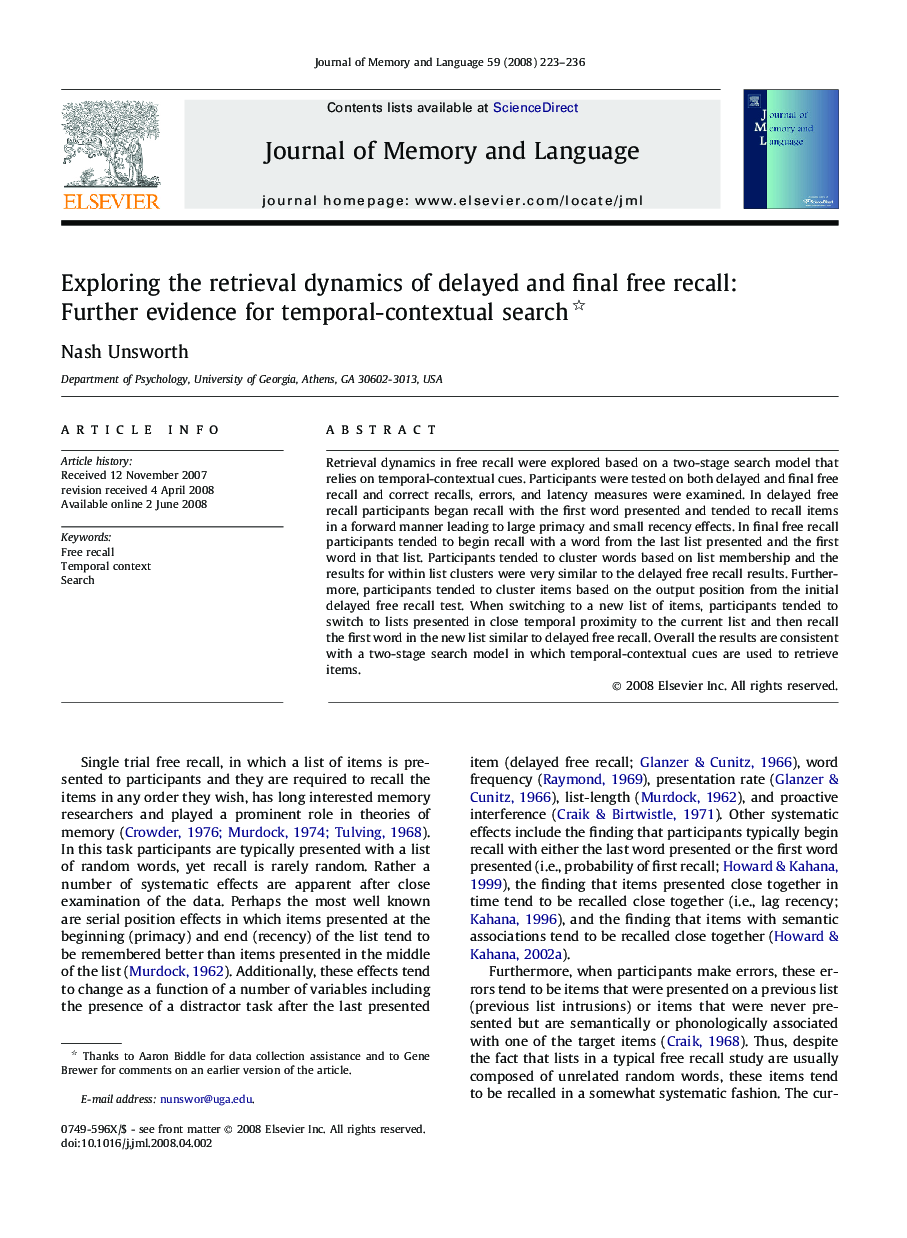| Article ID | Journal | Published Year | Pages | File Type |
|---|---|---|---|---|
| 932241 | Journal of Memory and Language | 2008 | 14 Pages |
Retrieval dynamics in free recall were explored based on a two-stage search model that relies on temporal-contextual cues. Participants were tested on both delayed and final free recall and correct recalls, errors, and latency measures were examined. In delayed free recall participants began recall with the first word presented and tended to recall items in a forward manner leading to large primacy and small recency effects. In final free recall participants tended to begin recall with a word from the last list presented and the first word in that list. Participants tended to cluster words based on list membership and the results for within list clusters were very similar to the delayed free recall results. Furthermore, participants tended to cluster items based on the output position from the initial delayed free recall test. When switching to a new list of items, participants tended to switch to lists presented in close temporal proximity to the current list and then recall the first word in the new list similar to delayed free recall. Overall the results are consistent with a two-stage search model in which temporal-contextual cues are used to retrieve items.
